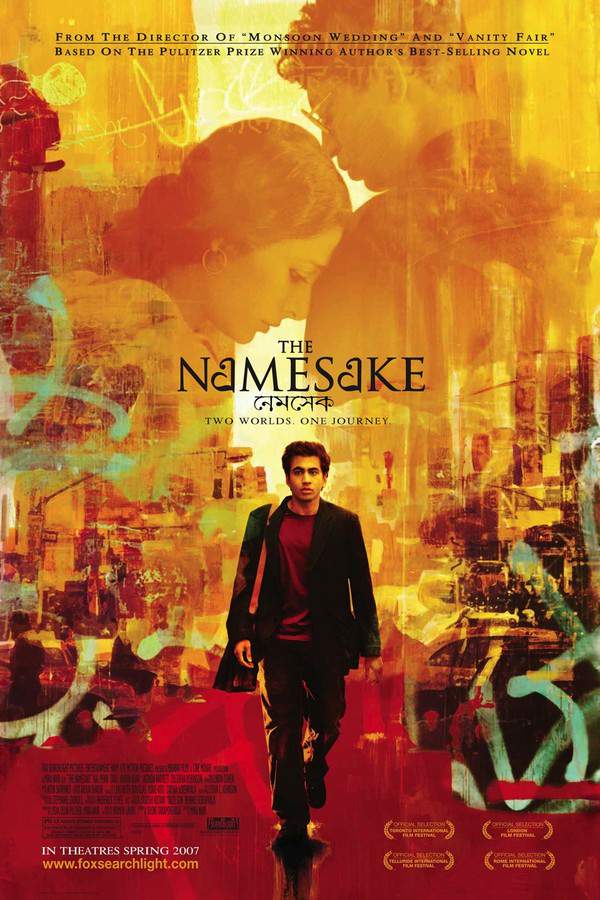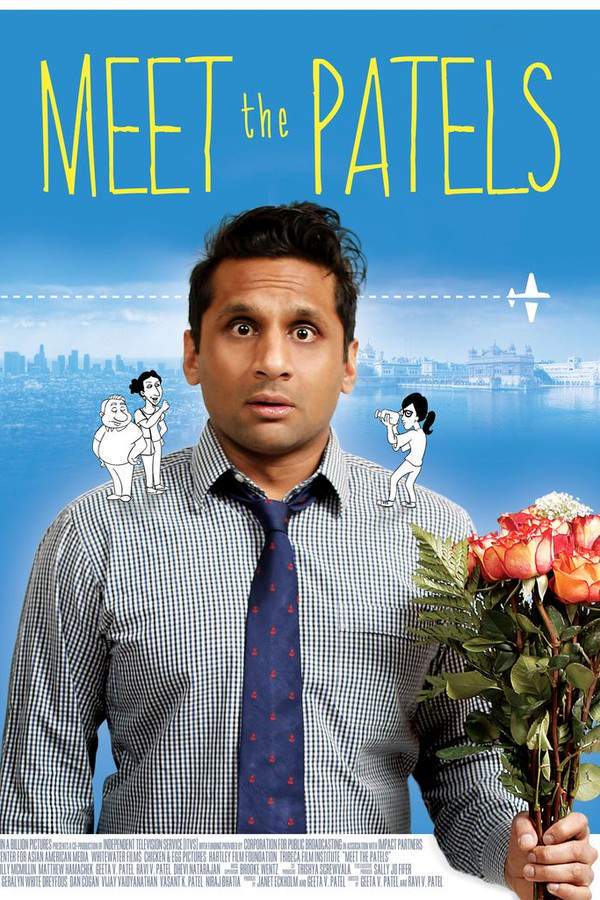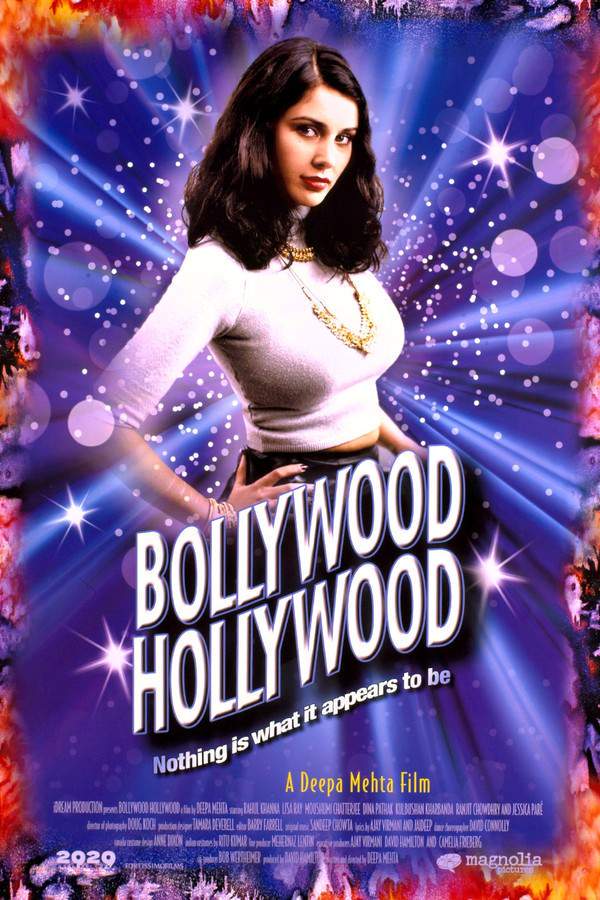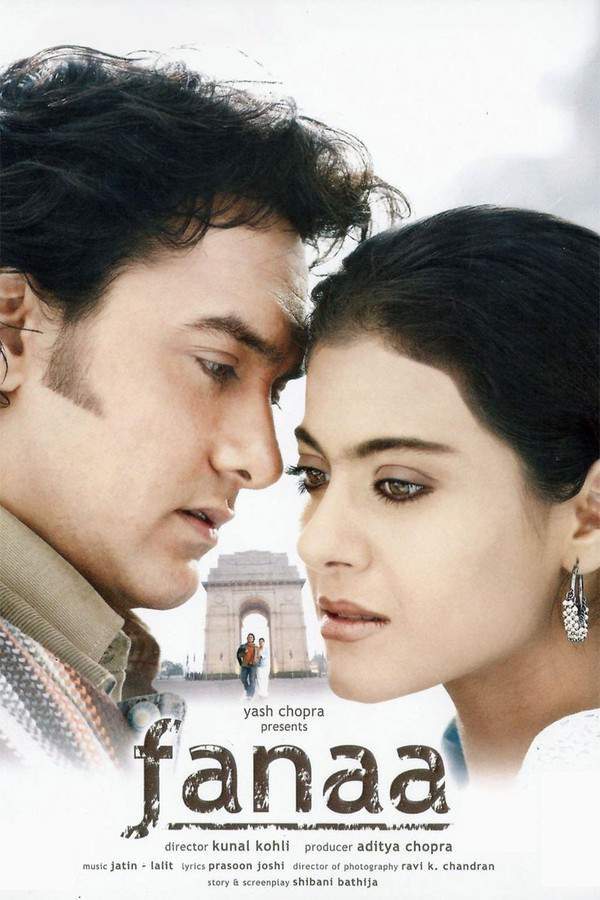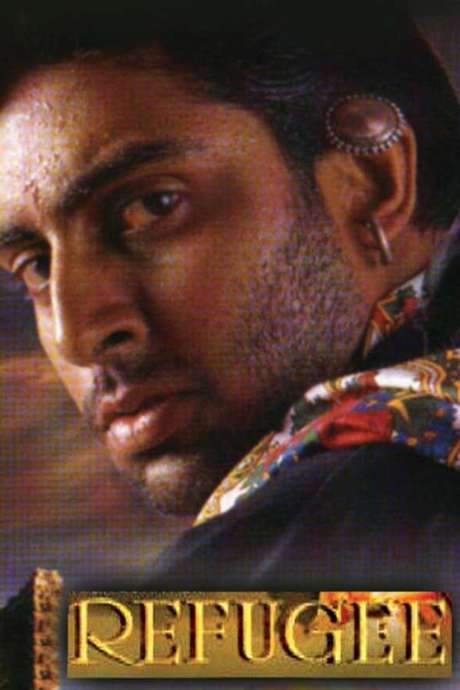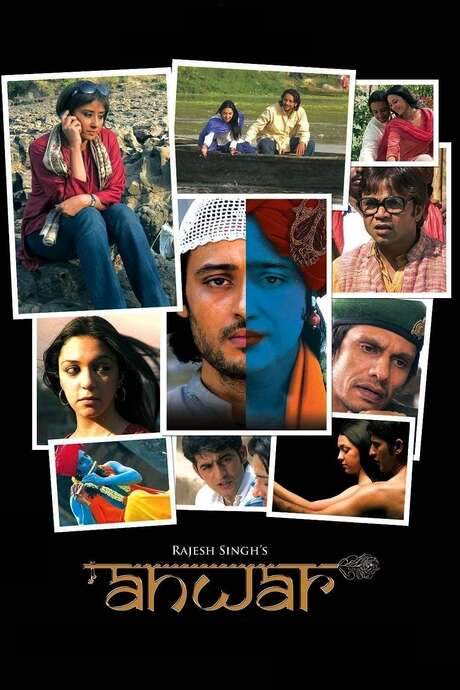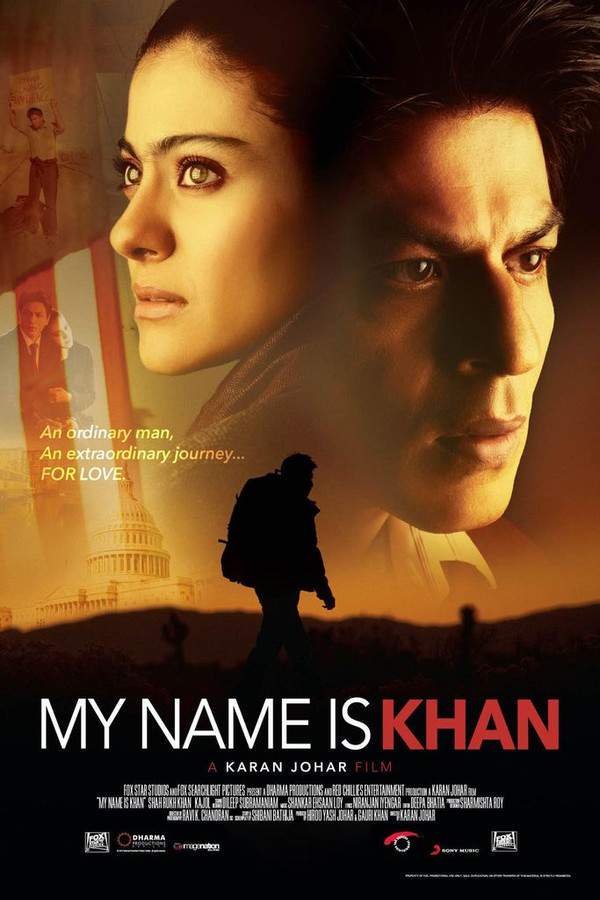
My Name Is Khan 2010
Directed by
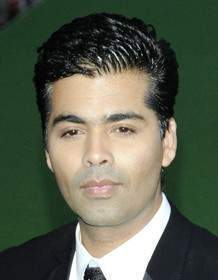
Karan Johar
Made by

Fox Searchlight Pictures
Test your knowledge of My Name Is Khan with our quiz!
My Name Is Khan Plot Summary
Read the complete plot summary and ending explained for My Name Is Khan (2010). From turning points to emotional moments, uncover what really happened and why it matters.
During November 2007, Rizwan Khan, an autistic man living in San Francisco, embarks on a meaningful journey to meet President George W. Bush. His mission? To assert, “My name is Khan, and I am not a terrorist.” Due to his autism, Rizwan nervously mutters to himself, leading to racial profiling that causes him to miss his last flight to Washington DC. Left with no other choice, he boards a bus, as the cost of the next flight is simply beyond his means.
Rizwan, played by Shahrukh Khan, was raised in Borivali, Mumbai, by his father, Dilawar Amanaullah Khan; his mother, Razia; and his brother, Zakir. Each family member played a unique role in Rizwan’s life. Tragically, after his father’s death, Rizwan suffers abuse from classmates and even his brother Zakir, who feels overshadowed by the attention their father devoted to Rizwan. Zakir, feeling neglected, hires Wadia to teach Rizwan, appreciating his exceptional intelligence but also craving familial recognition himself.
As the years roll on, Zakir relocates to the U.S.A. and marries Hasina. He sponsors Rizwan and Razia’s immigration, but grief strikes when Razia passes away before they can set foot in the U.S. In San Francisco, Zakir runs a beauty products company, and it is here that Rizwan begins a new chapter as a door-to-door salesman. Here, Hasina, a psychology professor, diagnoses him with Asperger’s Syndrome.
While trying to make ends meet, Rizwan becomes enamored with a Hindu salon worker named Mandira Rathod, performed by Kajol. Mandira is a single mother who’s endured significant hardship—her husband left her when she was just 19, leaving her to raise their son Sameer alone. Despite Zakir’s disapproval of their marriage due to cultural differences, Rizwan and Mandira unite and open a salon together in Banville, establishing a semblance of a peaceful life next to the Garrick family.
However, their idyllic existence shatters in the wake of the September 11 attacks, thrusting them into a world marked by discrimination and suspicion. As tensions escalate, tragedy strikes when a conflict leads to the death of Sameer, prompting Mandira to irrationally blame Rizwan. In a moment of hurt and sarcasm, she tells him he must inform everyone, including the President, that he is not a terrorist.
Taking her words literally, Rizwan dedicates himself to meeting President Bush, but despite chasing him across the nation, he repeatedly finds himself thwarted and frustrated. After six months, authorities decide to close Sameer’s case due to lack of evidence, further deepening Mandira’s anger.
In an impactful incident, Rizwan challenges a radical speaker, Dr. Faisal Rahman, with the true essence of the Quran, marking a pivotal moment. While attempting to express himself at a Bush rally, he shouts, “My name is Khan, and I am not a terrorist!” This outcry results in his arrest as the crowd misinterprets his intentions. Following an incredible media outcry, journalists investigate his life and prove his innocence, revealing the motivations behind his actions.
As Rizwan travels across the country, he eventually finds himself in Wilhemina, Georgia, where he selflessly helps a family impacted by a hurricane. His heroic actions become a national sensation, garnering attention and support from ordinary citizens. In a twist of fate, when Reese, the son of the Garricks, finally names the boys responsible for Sameer’s death, justice is served.
Despite facing numerous challenges, including a near-fatal stab wound at the hands of one of Faisal’s followers, Rizwan’s perseverance led him to a meeting with President Obama, who reassures him with the same words he has long sought: “Your name is Khan and you are not a terrorist.” Ultimately, this moment of reconciliation offers hope and healing as Mandira forgives him, culminating a powerful narrative of identity and resilience.
My Name Is Khan Timeline
Follow the complete movie timeline of My Name Is Khan (2010) with every major event in chronological order. Great for understanding complex plots and story progression.
Rizwan's Journey Begins
In November 2007, Rizwan Khan, an autistic man, begins a significant journey from San Francisco to meet President George W. Bush. Determined to declare, 'My name is Khan, and I am not a terrorist,' his purpose is clear but complicated by his challenges.
Racial Profiling Incident
While preparing for his flight to Washington D.C., Rizwan's nervousness leads to racial profiling due to his autism. This unfortunate event results in him missing his flight, which forces him to seek alternative transportation.
Childhood in Borivali
Rizwan is raised in Borivali, Mumbai, in a close-knit family with his father, mother, and brother. His father, Dilawar, strongly supports Rizwan, but the death of their patriarch leads to tensions and hardships within the family.
Zakir's Feelings of Neglect
Rizwan's brother, Zakir, struggles with feelings of neglect as their father's attention is solely on Rizwan's needs. This jealousy prompts Zakir to hire Wadia to tutor Rizwan, indicating a conflicting mix of love and resentment.
Immigration to the U.S.
After his father's death, Zakir moves to the U.S., marrying Hasina and eventually sponsoring Rizwan and their mother Razia for immigration. Tragically, Razia passes away before they can join Zakir in America, marking a poignant loss.
New Beginnings in San Francisco
In San Francisco, Rizwan starts a new life as a door-to-door salesman after his brother Zakir sets up a beauty products company. Here, he faces the challenges of adjusting to a new environment while struggling with his autism.
Meeting Mandira Rathod
Rizwan meets Mandira Rathod, a resilient single mother and salon worker, and they develop a deep connection despite cultural differences. Their bond leads to a loving marriage, igniting hope for a shared future.
Post-9/11 Struggles
The tragic events of September 11 create tension and discrimination against Rizwan and Mandira. They experience the harsh realities of prejudice that ultimately lead to a devastating incident affecting their son, Sameer.
The Death of Sameer
In a moment of violence resulting from societal tensions, Sameer is killed, triggering heartbreak in the family. Mandira sadly blames Rizwan for his death, igniting a painful and destructive conflict between them.
Rizwan's Determination
Feeling the weight of Mandira's words, Rizwan embarks on a relentless mission to meet President Bush. His journey across the nation is filled with challenges as he is repeatedly thwarted in his attempts.
Rizwan's Arrest
At a rally for President Bush, Rizwan seizes an opportunity to broadcast his message, shouting, 'My name is Khan, and I am not a terrorist!' This passionate declaration leads to his arrest due to misunderstanding by the crowd.
Media Attention and Innocence Proven
Following his arrest, the media takes an interest in Rizwan's story, shining a light on his life. Journalists uncover the truth, revealing his commitment to peace and ultimately proving his innocence.
Heroic Actions in Wilhemina
In a selfless act, Rizwan helps a family afflicted by a hurricane in Wilhemina, Georgia. His bravery captures the nation's attention, demonstrating the character's resilience and compassion during tough times.
Justice for Sameer
Reese, the son of the Garricks, bravely names the boys responsible for Sameer's death, bringing a sense of closure to the traumatic chapter of their lives. This act of courage marks a pivotal shift in the ongoing narrative.
Meeting President Obama
Rizwan's arduous journey culminates in a powerful meeting with President Obama, who reassures him with the heartfelt words he had sought. This moment brings forgiveness and healing, ending Rizwan’s transformative journey.
My Name Is Khan Characters
Explore all characters from My Name Is Khan (2010). Get detailed profiles with their roles, arcs, and key relationships explained.
Rizwan Khan (Shahrukh Khan)
Rizwan is an autistic man whose life is defined by his quest for identity and understanding after facing discrimination and mistrust. He possesses a unique intelligence and sincerity, embodying kindness and determination. Despite facing significant challenges, he refuses to succumb to despair, showcasing resilience and the ability to advocate for himself and his beliefs.
Mandira Rathod (Kajol)
Mandira is a strong and independent woman, a single mother who has faced hardship yet remains loving and supportive. Her relationship with Rizwan represents both cultural challenges and deep emotional connections. The loss of her son Sameer profoundly affects her, leading to moments of emotional conflict and growth throughout the film.
My Name Is Khan Settings
Learn where and when My Name Is Khan (2010) takes place. Explore the film’s settings, era, and how they shape the narrative.
Time period
November 2007
The film is set during a tense time in U.S. history, shortly after the September 11 attacks, which heightened racial profiling and discrimination against Muslims. This era saw significant societal upheaval as emotions ran high, leading to misunderstandings and conflict. Rizwan's journey is not just personal but also reflective of broader themes of identity and acceptance in a post-9/11 world.
Location
San Francisco, Borivali, Mumbai, Washington DC, Banville, Wilhemina, Georgia
The movie takes place across several significant locations. San Francisco serves as the backdrop for Rizwan's life and struggles, known for its cultural diversity and scenic beauty. Borivali, Mumbai, represents Rizwan's roots and familial connections, while Washington DC symbolizes his quest for acknowledgment and justice. The towns of Banville and Wilhemina, Georgia, highlight the contrast between his peaceful life and the aftermath of societal tensions.
My Name Is Khan Themes
Discover the main themes in My Name Is Khan (2010). Analyze the deeper meanings, emotional layers, and social commentary behind the film.
🕊️
Identity
The theme of identity is central to Rizwan's journey as he grapples with cultural misconceptions and the stigma attached to his name. His repeated assertion, 'My name is Khan,' serves as a powerful reminder of his humanity amidst unjust assumptions. The film explores how identity can be both a source of strength and vulnerability in the face of societal challenges.
🤝
Unity
Unity emerges as a theme through Rizwan’s efforts to bridge divides in a society marked by fear and misunderstanding. Whether it's through his marriage to Mandira or his heroism in Wilhemina, Rizwan embodies the potential for people to come together despite their differences. The film encourages viewers to see beyond labels and recognize shared humanity.
💔
Loss
Loss profoundly affects the characters in the film, particularly through the tragic death of Sameer. The grief experienced by Mandira and Rizwan illustrates how personal tragedy can lead to broader societal conflict and misunderstanding. The treatment of loss serves as a catalyst for Rizwan's journey, prompting self-discovery and resilience.

Coming soon on iOS and Android
The Plot Explained Mobile App
From blockbusters to hidden gems — dive into movie stories anytime, anywhere. Save your favorites, discover plots faster, and never miss a twist again.
Sign up to be the first to know when we launch. Your email stays private — always.
My Name Is Khan Spoiler-Free Summary
Discover the spoiler-free summary of My Name Is Khan (2010). Get a concise overview without any spoilers.
In the years following a national tragedy, the United States feels both hopeful and wary, a landscape where ordinary streets pulse with an undercurrent of suspicion. Against this backdrop lives Rizwan Khan, an earnest man whose mind works with the precise clarity of a mathematician yet is touched by the social challenges of Asperger’s syndrome. His quiet routine in San Francisco is shaped by a gentle kindness and an unwavering belief that a name does not define a destiny.
Mandira Rathod enters Rizwan’s world as a resilient single mother navigating the demands of a new country while holding onto the traditions of her heritage. Their connection blossoms in a modest salon, where shared laughter and mutual respect illuminate how love can bridge cultural divides. The film’s tone balances tender intimacy with the larger, uneasy atmosphere of a society grappling with fear and misunderstanding.
When the country’s collective anxiety sharpens after a watershed event, Rizwan and Mandira find their peaceful existence quietly disturbed. The couple begins to sense how quickly ordinary gestures can be misread, prompting Rizwan to contemplate a personal mission that reaches far beyond his own doorstep. His resolve is quietly grounded in the simple desire to be seen for who he truly is, rather than the stereotypes projected onto him.
This resolve sets the stage for a moving, cross‑country odyssey that carries Rizwan across diverse American landscapes. Along the way, he encounters strangers whose compassion and curiosity challenge his perceptions, while other encounters test his patience and belief in humanity. The journey becomes a soulful exploration of identity, dignity, and the quiet strength found in perseverance, leaving viewers eager to see how a man’s quiet truth might echo across a nation still searching for its own.
Can’t find your movie? Request a summary here.
Movies with Similar Twists and Themes
Uncover films that echo the narrative beats, emotional arcs, or dramatic twists of the one you're exploring. These recommendations are handpicked based on story depth, thematic resonance, and spoiler-worthy moments — perfect for fans who crave more of the same intrigue.
Featured on this page

What's After the Movie?
Not sure whether to stay after the credits? Find out!
Explore Our Movie Platform
New Movie Releases (2025)
Famous Movie Actors
Top Film Production Studios
Movie Plot Summaries & Endings
Major Movie Awards & Winners
Best Concert Films & Music Documentaries
Movie Collections and Curated Lists
© 2025 What's After the Movie. All rights reserved.


